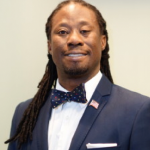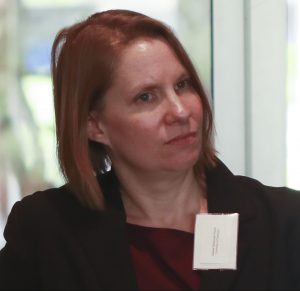Nick Crofts, AM
Honorary Professorial Fellow
School of Population and Global Health, University of Melbourne
Honorary Professorial Fellow
Australian Institute of Police Management
Senior Expert, International Development Law Organisation
Professor Nick Crofts is an epidemiologist and public health practitioner who has been working in the fields of HIV/AIDS, illicit drugs, harm reduction and law enforcement for over 30 years. His major epidemiological work has been on the control of HIV and hepatitis C among injecting drug users in Australia (for which he received an NHMRC Senior Research Fellowship) and globally, including almost every country in Asia, for which he received the International Rolleston Award from the International Harm Reduction Association in 1998, and was made a Member of the Order of Australia in 2018.
He was at the Burnet Institute for Medical Research and Public Health for 19 years, where he was instrumental in building its Public and International Health arms, and was Deputy Director for five years. He was Director of Turning Point Alcohol and Drug Centre for three years, and then at the Nossal Institute for Global Health for three years. He was Visiting Senior Research Fellow at the UN Interregional Crime and Justice Research Institute in Turin in 2012, and is currently a Senior Expert at the International Development Law Organization in The Hague, resident in Amsterdam. He has been a member of Australia’s National Council on AIDS three times, and has performed multiple consultancies for WHO, UNAIDS, UNODC, AusAID and other bilateral and multilateral agencies.
As a designer and technical director of AusAID’s flagship HIV/AIDS program in Asia, ARHP 2002-2007, he was instrumental in building capacity among SE Asian police forces in relation to HIV, and has worked in many settings forging relationships between police and public health. Through the Centre for Law Enforcement and Public Health, of which he is founding Director, he founded the Law Enforcement and HIV Network (LEAHN) in 2009, and is Director of the annual Law Enforcement and Public Health Conferences from which the Global Law Enforcement and Public Health Association has grown.
He is married to his best friend, Kerri, and has four remarkable young women as daughters.
 Jennifer Wood
Jennifer Wood
Department of Criminal Justice, Temple University, USA
Jennifer Wood is a Professor in the Department of Criminal Justice at Temple University in Philadelphia, USA. She received her doctorate in criminology at the University of Toronto. Prior to joining Temple, she served as a Fellow at the Regulatory Institutions Network (RegNet) at the Australian National University.
Jennifer is a criminologist with expertise in policing and regulation. Her previous work examined the ways in which public and private entities link together and function to produce order and security. Her current work focuses on the public health dimensions of everyday police work. Her research seeks to describe and explain the ways in which officers manage behavioral health-related encounters as well as the contexts of their decision-making. She is also engaged in collaborative projects designed to identify and assess pre-arrest interventions for navigating people toward behavioral health and social services.
 Oscar Alleyne
Oscar Alleyne
Chief of Programs and Services
National Association of County and City Health Officials
Oscar Alleyne is Senior Advisor for Public Health Programs at the National Association of County and City Health Officials providing leadership and senior level management of a portfolio of $14 million covering the programmatic divisions of Infectious Disease and Informatics, Public Health Preparedness, Pandemic and Catastrophic Preparedness, and Environmental Health. Dr. Alleyne began his career in governmental public health and for 15 years served as the Director of Epidemiology and Public Health in Rockland County. He holds a Doctorate in Public Health from the New York Medical College, School of Health Sciences and Practice and is a graduate of the University at Albany, School of Public Health.
 Evan Anderson
Evan Anderson
University of Pennsylvania
Senior Fellow
Lecturer, Schools of Nursing and Medicine
Evan Anderson is a Senior Lecturer at the University of Pennsylvania, where he teaches in multiple schools and programs. Dr. Anderson is a Public Health Law Researcher. With doctoral training in law and public health, his research blends doctrinal legal analysis and epidemiologic methods. His most recent work explores pre-booking diversion programs, “drug courts” and other specialized court programs, and drug consumption rooms. Dr. Anderson was formerly the Senior Fellow at the Public Health Law Research program, a National Program Office of the Robert Wood Johnson Foundation, which supports empirical research on the health effects of laws and legal processes.
Assistant Director of Diversion and Deflection
Office of Criminal Justice
Managing Director’s Office
City of Philadelphia

Catie Bialick
Criminal Justice Manager
Arnold Ventures
Washington DC
Catie Bialick is responsible for analyzing, designing, and executing high-leverage philanthropic investments for Arnold Ventures Criminal Justice Initiative. Catie has worked at the intersection of law enforcement, mental health, substance use disorder, and homelessness, and is committed to a vision for public safety where police use arrest sparingly and equitably, where those in crisis receive the help that they need without fear of punitive responses, and where funding and policy support safe and healthy communities. Prior to joining AV, Catie worked as a research analyst for the Community Advancement Network (CAN), a partnership of government, nonprofit, and faith-based organizations that seeks to improve health, education, and economic opportunities for residents of Central Texas. Her experience also includes a short stint in the City of Austin Mayor’s office, as well as positions in marketing, public relations, and program management.
Catie received her master’s in public affairs from the Lyndon B. Johnson School of Public Affairs at the University of Texas at Austin. She also holds a bachelor’s degree in public relations from The University of Texas at Austin.
 Scott Burris
Scott Burris
Temple University
Professor of Law, Temple Law School
Professor, College of Public Health
Director, Center for Public Health Law Research
Scott Burris, J.D., is a Professor of Law at Temple Law School, where he directs the Center for Public Health Law Research. He is also a Professor in Temple’s School of Public Health.
Burris began his career in public health law during the early days of the HIV/AIDS epidemic. He was the editor of the first systematic legal analysis of HIV in the United States, AIDS and the Law: A Guide for the Public (Yale University Press, 1987; New Guide for the Public published 1993), and spent several years lobbying and litigating on behalf of people with HIV as an attorney at the American Civil Liberties Union. Since joining the Temple faculty in 1991, his research has focused on how law influences public health and health behavior. In 2009, he founded the Public Health Law Research Program for the Robert Wood Johnson Foundation, which has supported over 80 empirical studies of the impact of law on health, as well as LawAtlas, an innovative policy surveillance portal, and a comprehensive resource on scientific health law research methods.
He is the author of over 200 books, book chapters, articles and reports on issues including urban health; discrimination against people with HIV and other disabilities; HIV policy; research ethics; and the health effects of criminal law and drug policy. He has been particularly interested in developing theory and methods aimed at promoting effective local health governance. His work has been supported by organizations including the Robert Wood Johnson Foundation, the Open Society Institute, the National Institutes of Health, the Bill and Melinda Gates Foundation, the UK Department for International Development, AmfAR and the Trust for America’s Health, the Drug Policy Alliance, the National Institute of Drug Abuse, the National Institute of Mental Health, and the Centers for Disease Control and Prevention.
He has served as a consultant to numerous United States and international organizations, including the United Nations Development Programme, the World Health Organization, the United Nations Office on Drugs and Crime, the Institute of Medicine and to the producers of the Oscar-winning film Philadelphia. He is a founder of Legal Science, LLC, a private company dedicated to the social mission of improving access to legal information and the supporting of the practice of policy surveillance. He has been a visiting scholar at RegNet at the Australian National University, and a Fulbright Fellow at the University of Cape Town Law School. He is affiliated with the Center for Interdisciplinary Research on AIDS at Yale, and serves as an advisor to the Tsinghua University AIDS Institute, the Shanghai Academy of Social Sciences Research Center for HIV/AIDS Public Policy and the Program in Bioethics at Monash University.
In 2014, he was the recipient of the American Public Health Association Law Section Lifetime Achievement Award, and in 2018 he was the recipient of the Jay Healey Health Law Professors award. Professor Burris is a graduate of Washington University in St. Louis (A.B.) and Yale Law School (J.D.).
 Marsha Zibalese-Crawford
Marsha Zibalese-Crawford
Marsha Zibalese-Crawford, PhD, MSW, is an Associate Professor, in the Temple University College of Public Health, School of Social Work. She combines a rich array of experience developing organizational and community sustainable partnerships for both the public and private sectors that address critical societal issues (e.g. violence prevention and substance use) and contribute to the public good. Her community-based participatory research (CBPR) and planning and program evaluation approaches provide the unique opportunity for community engagement to be involved and part of the shared experience making a positive impact on community health in the United States and globally.
 Brandon del Pozo
Brandon del Pozo
Brandon del Pozo, PhD, MPA, MA is a postdoctoral researcher in substance use at Rhode Island’s Miriam Hospital and the Warren Alpert Medical School of Brown University. He served as a police officer for 23 years: 19 in the NYPD and four as the Chief of Police of Burlington, Vermont. While in New York, he commanded the 6th and 50th Precincts, and served on the staff of the Chief of Department and the Police Commissioner. In Burlington, he led the city’s public health response to the opioid crisis, focusing in medication-based interventions, contributing to a 50% reduction in overdose deaths. He holds a PhD in philosophy from the City University of New York, a master of arts in criminal justice from John Jay College, a master of public administration from Harvard University, and a bachelor’s degree from Dartmouth College.
 Rosemary Frasso
Rosemary Frasso
Thomas Jefferson University
CPH Associate Professor Program Director,
Public Health College of Population Health
Thomas Jefferson University
Dr. Rosemary (Rosie) Frasso is a public health researcher and educator. Dr. Frasso earned her PhD from the University of Pennsylvania’s School of Social Policy & Practice, as well as two master’s degrees from the Harvard T.H. Chan School of Public Health. Her current research focuses on health disparities, housing insecurity, health literacy and the integration of qualitative and quantitative methods in projects designed to improve population health, healthcare quality and access to physical and mental health services for vulnerable populations.
Her expertise in qualitative methods includes traditional and alternative data collection approaches, including, but not limited to, walking interviews, photo-elicitation interviews, free-listing and consensus-deriving group approaches. Additionally, she has works on several cross-disciplinary projects with educators, artists and economists who are committed to using qualitative methods to enhance community collaborations, to support communities as they advocate for change and to amplify the voices of vulnerable populations.
 Patricia Griffin
Patricia Griffin
Director of Graduate Criminal Justice Programs
Holy Family University
Dr. Patricia Griffin is an Assistant Professor and Director of the Graduate Criminal Justice Program at Holy Family University (Philadelphia). Patricia regularly consults with the non-profit organization, Law Enforcement Health Benefits, Inc. and the First Responders Addiction Treatment Program (FRAT), Livengrin Foundation, Inc. She is a member of the Pennsylvania Commission on Crime and Delinquency, Criminal Justice Advisory Committee. Dr Griffin is on the GLEPHA Board of Directors.
Oren Gur
Director of Research, Policy Advisor
Director of District Attorney’s Transparency Analytics (DATA) Lab
Philadelphia District Attorney’s Office
Oren Gur, PhD, joined the Philadelphia District Attorney’s Office (DAO) in 2018 as the Director of Research and Policy Advisor to Larry Krasner and now also serves as
Director of the DA’s Transparency Analytics (DATA) Lab, a new unit that has received foundation support to improve the DAO’s ability to capture, analyze, and research the impact of prosecutorial discretion on individuals and communities. A lifelong Philadelphian, Oren wanted to work for a reform-minded District Attorney to help use data, research, and criminological theory to plan and implement policy to transform Philadelphia’s criminal justice system, and to make the office the most research-friendly prosecutor’s office in the country. Efforts germane to this conference include prosecutor-led bail reform, decriminalizing buprenorphine possession, expediting the adjudication of nonfatal shooting cases, and supporting research on topics including bail reform, accidental drug overdoses and criminal justice contacts, and the resentencing of juvenile lifers. Dr. Gur’s training is in ethnographic interviewing and neuroscience methodologies, with interests in the use of technologies in criminal justice. Prior to joining the DAO he was an Assistant Professor of Criminal Justice at Penn State Abington. Oren holds a B.A. in Urban Studies and M.S. in Criminology from Penn and a Ph.D. in Criminology, Law, & Justice from the University of Illinois at Chicago.
 Daliah Heller
Daliah Heller
Director of Drug Use Initiatives
Vital Strategies
Daliah Heller is the Director of Drug Use Initiatives at Vital Strategies, the lead partner in Bloomberg Philanthropies’ initiative to reduce overdose deaths in targeted states across the country. She has worked for more than two decades in leadership positions to promote, design, and implement a public health response to drug and alcohol use in public policy and practice. She established the Alcohol and Drug Use Bureau as Assistant Commissioner at the New York City Department of Health and Mental Hygiene, and previously, she built and led a nationally-recognized organization providing harm reduction services in the Bronx. She has served as an advisor on drug and alcohol policy to state and local governments, community leaders, and non-profit organizations. Daliah holds a PhD in Social Welfare from City University of New York Graduate Center, MPH in Population and Family Health from Columbia University, and BA in Political Science and Philosophy from McGill University.
 Mikayla Hellwich
Mikayla Hellwich
Law Enforcement Action Partnership (LEAP)
Miriam Aroni Krinsky
Fair and Just Prosecution
Miriam Aroni Krinsky is the Executive Director of Fair and Just Prosecution, a nonprofit that supports and inter-connects recently elected leaders of prosecutors’ offices committed to new thinking and innovation. She has spent the past few decades working in public service, justice system reform and academia, including 15 years as a federal prosecutor — both in Los Angeles and on a strike force in the Mid-Atlantic region.
In 2012, Miriam served as the Executive Director of Los Angeles County’s Citizens’ Commission on Jail Violence, a high-level Commission appointed to investigate allegations of excessive force by Los Angeles Sheriff’s deputies in L.A. County jails. She has taught at the UCLA School of Public Policy and at Loyola and Southwestern Law Schools, served as a policy consultant on youth violence prevention, juvenile justice, and justice reform issues for The California Endowment and spent five years as the Executive Director of the Children’s Law Center of Los Angeles – a legal services organization representing over 20,000 abused and neglected children. She also served as President of the Los Angeles County Bar Association, on the Los Angeles City Ethics Commission (serving as Commission President for three years), on the California Judicial Council and California State Bar Board of Trustees (by appointment of the California Supreme Court) and on the American Law Institute Sentencing Project Advisory group and the Principles of Policing Advisory Group. She has testified before national and state legislative bodies, authored over 50 articles, and lectured nationwide on criminal law, law enforcement oversight and reform, juvenile justice, and sentencing issues.
 Rebecca Neusteter
Rebecca Neusteter
Dr. S. Rebecca Neusteter has dedicated her career to advancing equity in the criminal justice and health care systems. Her work spans the country. She is focused on reducing justice system contact, disparities, and collateral consequences. She works to enhance public safety, civic participation, and opportunities to support health and vitality. Rebecca previously served as the Vera Institute of Justice’s founding Policing Program Director. Prior to that position, she served as Director of Research, Policy, and Planning for the NYPD. Rebecca has also served as Director of Criminal Justice for the Laura and John Arnold Foundation, Research Associate for the Urban Institute’s Justice Policy Center, Director of Criminal Justice Programs for The Doe Fund, Senior Analyst for the NYC Office of Management and Budget, and Deputy Director of Planning for the Center for Employment Opportunities. Rebecca holds several appointments, including trustee of Friends of Island Academy, a nonprofit organization that supports and brings opportunity to youth during and after their time in New York City jails; Research Advisory Board member of the Police Executive Research Forum; and Research Advisory Committee member of the International Association of Chiefs of Police. Rebecca holds a PhD in Criminal Justice from John Jay College of the Graduate Center, City University of New York, an MS in Urban Policy Analysis and Management from the Milano Graduate School of the New School University, and a BA in Sociology from Chapman University.
 Donna Nickitas
Donna Nickitas
Rutgers School of Nursing – Camden
Donna M. Nickitas- a noted health policy scholar, an energetic visionary regarding the future of health care and nursing education in America, and an accomplished administrator –is the new dean of the Rutgers School of Nursing- Camden.
A retired major in the U.S. Air Force Nurse Reserve Corps, Dr. Nickitas assumed the deanship after a distinguished career at the City University of New York’s Hunter-Bellevue School of Nursing and The Graduate Center, where she was a professor, the executive officer of the nursing science Ph.D. program and as the specialty coordinator of the dual degree in nursing administration/public administration. She played a critical role in growing enrollment and enhancing the school’s national profile.
Dr. Nickitas’ long history of advocacy for equitable health care, expertise in academic nursing education, and proven ability to foster a culture of cross-sector engagement positions her to lead the dynamic growth of the Rutgers-Camden nursing school. She is building on its tradition of preparing nurses to serve society and do public good by advancing health, driving public policy, and promoting access to quality, patient-centered care.
She is widely published and has authored, co-authored, or co-edited peer-reviewed books related to the nursing profession such as Public Policy and Politics for Nurses and Other Health Professionals released in 2019. Her scholarship and research consistently appear in peer-reviewed publications. Since 2008, she has served as the editor of Nursing Economic$, a journal dedicated to advancing nursing leadership and innovation.
Dr. Nickitas is a fellow of the American Academy of Nursing, a fellow of the National Academies of Practice, and a fellow of the New York Academy of Medicine. She has a Ph.D. in Nursing Research from Adelphi University, an MA from New York University, a BSN from the State University of New York at Stony Brook, and an AAS from Kingsborough Community College. She is a board member of the New Jersey Department of Health, Preventative Committee on Health and the treasurer for the Eastern Nursing Research Society.
 Jennifer Pinto- Martin
Jennifer Pinto- Martin
University of Pennsylvania
Viola MacInnes/Independence Professor of Nursing
Professor of Epidemiology, Perelman School of Medicine
Director, Master of Public Health Program
Director, Pennsylvania Center for Autism and Developmental Disabilities Research and Epidemiology
Jennifer Pinto-Martin PhD, MPH, is the Executive Director for CPHI and oversees all education, research and action initiatives. She is also the Director of the recently-funded Center for Autism and Developmental Disabilities Research and Epidemiology (CADDRE). The University of Pennsylvania Center is one of five such Centers funded by the national Centers for Disease Control and Prevention to work collaboratively to understand the causes of autism and the reasons for its recent increase in prevalence nationwide. The CADDRE is also engaged in research on early screening and identification of ASD, nursing care for families with children newly diagnosed with ASD, sleep disorders in children with ASD, and the psychological health of siblings of children with ASD. Dr. Pinto-Martin served as the President of the Society for Pediatric Epidemiologic Research and is currently on the Editorial Board for the journal Pediatric and Perinatal Research. She served as a special consultant to the National Institutes of Health on their research initiative on autism during 2001. Dr. Pinto-Martin teaches undergraduate “Statistics” with a focus on the real world application of statistical knowledge. In addition, she teaches an “Introduction to the Principles” and ” Methods of Epidemiology,” a course that is very popular with researchers who want to learn about the techniques of epidemiologic research.
Executive Director, Center for Public Health Initiatives
 Debbie Plotnick
Debbie Plotnick
Debbie F. Plotnick, MSS, MLSP is the Vice President for State and Federal Advocacy at Mental Health
America (MHA). Debbie is recognized as a national thought leader contributing expertise on a wide
range of topics in behavioral health to local, state and federal policy makers, works with national
legislator groups as topic expert,serves on task forces, provides background for investigative reporting,
and is regularly interviewed by the media.
In her role at Mental Health America, Debbie provides leadership for grassroots and legislative advocacy across the MHA affiliate network and to national legislator groups. She coordinates the efforts of the Regional Policy Council (RPC), which focuses on state-level initiatives for equal access to behavioral health care, a full continuum of treatment and services, criminal justice diversion, and the value of
prevention and early intervention. Her most recent projects include working with the firearm owning community to promote mental health screening and training in suicide prevention for adolescents and
adults.
Debbie holds three degrees from Bryn Mawr College: an AB in political science; dual master’s degrees in Social Service (MSS) and Law and Social Policy (MLSP). Informing her perspective and her passion, are the people she works with and for, her own lived experience with depression, as a family member to those with mental health challenges, and her dedication to mental health systems advocacy.

Leah Pope
Senior Research Fellow
Policing Program
Vera Institute of Justice
Dr. Leah Pope is a Senior Research Fellow in the Policing Program at the Vera Institute of Justice and an anthropologist with extensive experience conducting research in the fields of public mental health and criminal justice. Leah is currently developing and testing an intervention designed to help young people with early psychosis in the New York City jail get connected to treatment sooner. She is also a co-investigator on a study of misdemeanor arrests among people with serious mental illnesses as well as a study on the ethics of information sharing between police and mental health providers. She recently co-directed a national training and technical assistance initiative to improve police-based responses to individuals with mental illnesses and intellectual and developmental disabilities. Leah received an A.B. from Harvard College and a Ph.D. from Teachers College, Columbia University.
 Michael Scott
Michael Scott
Clinical Professor, School of Criminology & Criminal Justice
Arizona State University
Director, Center for Problem-Oriented Policing
ASU Liaison to Phoenix Police Department
Director, Center for Problem-Oriented Policing, and, Clinical Professor, School of Criminology & Criminal Justice, Arizona State University
Michael S. Scott is the director of the Center for Problem-Oriented Policing and clinical professor at Arizona State University’s School of Criminology & Criminal Justice. He was formerly clinical professor at the University of Wisconsin Law School; chief of police in Lauderhill, Florida; served in various civilian administrative positions in the St. Louis Metropolitan, Ft. Pierce, Florida, and New York City police departments; senior researcher at the Police Executive Research Forum (PERF); and a police officer in the Madison, Wisconsin, Police Department. He is the chairperson for the Herman Goldstein Award for Excellence in Problem-Oriented Policing. He was the 1996 recipient of PERF’s Gary P. Hayes Award for innovation and leadership in policing. Scott holds a law degree from Harvard Law School and a bachelor’s degree from the University of Wisconsin-Madison.
 Jane A. Siegel
Jane A. Siegel
Rutgers-Camden University
Associate Dean for Undergraduate Education
Professor of Criminal Justice
Faculty of Arts and Sciences
Rutgers, The State University of New Jersey
Jane A. Siegel serves as department chair (2015-2018) and has taught a range of courses in criminal justice, including the introductory course, juvenile delinquency and juvenile justice, statistics, white collar crime and corrections. In Fall 2015, she will be teaching a course at South Woods State Prison in which students from the Rutgers campus will be learning alongside individuals incarcerated at South Woods, the first time that Rutgers–Camden will conduct an Inside-Out Prison Exchange Program course.
Dr. Siegel’s research interests include children of incarcerated parents, families and crime, the long-term consequences of child maltreatment and juvenile justice. Her research in these areas has been supported by grants from the National Institute of Justice, the National Center on Child Abuse and Neglect and the New Jersey Juvenile Justice Commission, and has been published in numerous journal articles. She is currently conducting a large-scale survey of visitors to and individuals incarcerated in a large urban jail system, focusing on family visitation. The project also includes in-depth interviews with children with an incarcerated family member. Dr. Siegel is also engaged in a follow-up study of the children interviewed for her book Disrupted Childhoods: Children of Women in Prison (Rutgers University Press, 2011).
Richard Southby
George Washington University
Commander (Ret) Richard F. Southby, Ph.D. (Med), F.F.P.H., F.C.L.M. (Hon), Distinguished Professor of Global Health and Executive Dean Emeritus, Milken Institute School of Public Health, The George Washington University, and, Honorary Professor, Melbourne School of Population and Global Health, Faculty of Medicine, Dentistry and Health Sciences, The University of Melbourne.
Dr. Richard Southby has been a faculty member at The George Washington University since 1979. Throughout his career at GWU he served as Chairman and Friesen Professor of International Health, Department of Health Services Management and Policy; Associate Dean for Health Services; Dean and Ross Professor of Global Health, School of Public Health and Health Services; and Executive Dean and Distinguished Professor of Global Health, GWU Medical Center. He was also the Founding Director of the Police Science Program, College of Professional Studies, and has served as Chair of the Dean’s Council for the College.
Since 1989 he has been a member of the Metropolitan Police Department Reserve Corps, Washington, DC. In 2008 he was promoted to Commander and appointed Commanding Officer of the Reserve Corps Division. He is also Senior Educational Adviser to the Department. Dr. Southby is Adjunct Professor of Military and Emergency Medicine at the Uniformed Services University of the Health Sciences, Bethesda, MD. Since 1984 he has been Director of the Interagency Institute for Federal Health Care Executives, which is the major professional development program for senior health professionals, across all disciplines, in the US Army, US Navy, US Air Force, US Public Health Service and the Department of Veterans Affairs.
He is a Board member of ASCEND, the Asian Collaboration for Excellence in Non-Communicable Diseases, and recently participated in, and co-authored the final report, the 2015 South Asian Regional Forum From Evidence to Effective Implementation: Improving the Prevention and Control of Diabetes and Other NCD’s in South Asia, held in Kalutara, Sri Lanka from 28-30 May, 2015. Currently, Dr. Southby is Co-Director of the Security and Health Executive Leadership Institute (SAHELI): Building Multi-Sectoral Partnerships for Enhanced Public Health and Security Across the Australia-Asia-Pacific Region. This Institute is being developed as a collaborative activity by the School of Population and Global Health in The University of Melbourne, Australia. Dr. Southby is President Emeritus of the Royal Society of Medicine Foundation, a Past President of the Australian Public Health Association and a Past President of the Asia Pacific Academic Consortium for Public Health.
 Jennifer Taylor
Jennifer Taylor
Drexel University
Arthur L. and Joanne B. Frank Professor,
Director of the Center for Firefighter Injury Research and Safety Trends (FIRST)
Environmental and Occupational Health
Dr. Taylor has been trained in the field of injury prevention and control, and uses its principles to address safety issues in healthcare and first responder industries.
Within healthcare organizations, she investigates safety and quality issues in both patient and provider populations. Her research focuses on system design for patient safety surveillance and the association between organizational culture and injuries to patients and nurses.
In an effort to comprehensively study patient safety, Dr. Taylor’s research unites evidence from the fields of injury prevention and control, quality improvement, and occupational safety. She employs an integrated public health approach to these issues through the study of patients, healthcare workers, and the policy environment. As an epidemiologist, she asks, “Do the associations between organizational climate and nurse injury extend to patients?” As a policy analyst, she asks, “What non-punitive policy alternatives to quality improvement might be possible to address growing patient and provider patient safety concerns?” As an injury professional, she asks, “How will the United States conduct the surveillance of patient safety events so we can assure the public of accurate statistics?”
For first responders, Dr. Taylor applies her surveillance and safety climate expertise to the U.S. fire and rescue service, investigating the relationship between safety culture and injury risk. This has been a natural extension of her patient safety work as many of the factors that impact medical care are found in the fire service. She served as the consultant epidemiologist to the International Association of Fire Chiefs’ (IAFC) National Near-Miss Reporting System from 2007-2011, a fascinating system through which firefighters report hazards they observe in their environment.
Dr. Taylor’s recent grant awards include (3) FEMA Assistance to Firefighter grants to develop model firefighter nonfatal injury surveillance systems and a survey to assess safety climate and its relationship with firefighter injury. She completed a NIOSH RO3 grant to apply machine learning algorithms to narrative text data from the IAFC Near-Miss system.
Prior to her academic appointment, Dr. Taylor served 15 years in state government, hospital quality management, and the basic sciences. She welcomes queries from, and extends mentoring to, students who are considering careers in these environments. Past positions include: the Chief of Health Statistics and Data Management for the State of New Hampshire, and Project Director of the CDC-funded program to establish emergency department data systems for injury surveillance at the Massachusetts Department of Public Health.
Auke van Dijk
Senior Strategist, Police of the Netherlands
Auke van Dijk is advisor to the chief of the Amsterdam police and strategist at the think tank Agora Police & Security. He has an academic background in international relations theory and international political economy. He has been senior advisor at the Committee for Evaluation of Intelligence and Security Services and was a member of the Vision on Policing Committee (Council of Chief Police Commissioners) that delivered a new comprehensive strategy for future policing.
He is cofounder of the Agora Police & Security. The Agora is an experimental space for thinking and debate among practitioners and academics. The central aim is to enhance the organisation’s ability to think; more specifically to make sense of the societal context and its current or future consequences for day-to-day policing, and to question the way ‘things are done’ by and in the organisation. The Agora is an ‘intellectual playing ground’ and a ‘safe haven’ for the development of new ideas and for contradicting current insights and policy.
Recent themes in his work are: the common ground of law enforcement and public health, vulnerable groups, policing a diverse society, and values-based leadership.
Amy Watson
Professor
Jane Addams College of Social Work
University of Illinois at Chicago
Dr. Watson is a professor at Jane Addams College of Social Work at University of Illinois at Chicago. She also holds a courtesy appointment in the Department of Crime Law & Justice. Professor Watson has worked extensively on issues involving the relationship between the criminal justice system and mental health systems, in Chicago and around the country. Her current research focuses on police encounters with persons with mental illnesses and the Crisis Intervention Team (CIT) model. Dr. Watson has published extensively on this work and presented findings to local, national and international audiences.
Dr. Watson has also conducted research and provided consultation to programs serving persons with mental illnesses with criminal justice system involvement. These include CIT programs, mental health courts and prison re-entry programs. Recently, she served on the De-escalation Work Group of the Chicago Police Accountability Task Force and serves on the Mayor’s Mental Health Steering Committee on an ongoing basis. She also served on the compliance team working with the City of Portland, Oregon on issues related to mental health crisis response. Prior to joining the faculty at UIC, she was the project director and co-investigator for the National Institute of Mental Health funded Chicago Consortium for Stigma Research (PI Corrigan). This was an interdisciplinary project focused on understanding and reducing mental illness stigma that included multiple studies and dissemination of findings to academic, professional and advocacy and community audiences. Dr. Watson continues to be interested in mental illness stigma and incorporates considerations of the impact of stigma in all of her work. Dr. Watson’s work has been recognized locally and internationally. In 2008, she received the Young Researcher of the Year Award from NAMI of Greater Chicago and in 2013, she was the recipient of the Crisis Intervention Team International CIT Researcher of the Year Award Early in her career, Dr. Watson worked as a probation officer on a specialized mental health team. She has a BA in Criminal Justice from Aurora University and an AM and PhD from the University of Chicago School of Social Service Administration.
GLEPHA Special Interest Group Convenors
 Isabelle Bartkowiak-Theron
Isabelle Bartkowiak-Theron
Senior Researcher, Tasmanian Institute of Law Enforcement Studies
Dr. Isabelle Bartkowiak-Theron is the coordinator of Police Studies in the School of Social Sciences at the University of Tasmania, and a senior researcher at the Tasmanian Institute of Law Enforcement Studies (TILES). Isabelle specialises in the qualitative and quantitative study of policing and policing services targeting vulnerable populations (e.g., young people, refugees, Aboriginal community members) and is in regular contact with representatives of these vulnerable populations.
 Richard Bent
Richard Bent
Senior Research Fellow, Institute for Canadian Urban Research Studies, Simon Fraser University
Richard has been a Senior Research Associate with the Institute for Canadian Urban Research Studies (ICURS), Simon Fraser University, British Columbia, since 2009. Prior to joining ICURS he served 35 years as a member of the Royal Canadian Mounted Police in a variety of diverse roles, and ended his career in the executive ranks of the RCMP.
Richard’s research interests include mental health calls for service, policing complexity, performance management for police organizations, national security, governance, and public policy pertaining to justice and policing issues.
Richard has developed strong ties with CEAMOS at the University of Chile and Griffith University, Brisbane, Australia.
 Jac Charlier
Jac Charlier
Executive Director, Police, Treatment, and Community Collaborative (PTACC)
Executive Director, TASC’s Center for Health and Justice
Jac Charlier is the Executive Director and co-founder of the Police, Treatment, and Community Collaborative (PTACC), and the Executive Director of TASC’s Center for Health and Justice (CHJ). PTACC is the voice of and knowledge leader for the field of deflection and pre-arrest diversion. CHJ is an international non-profit providing justice policy and systems solutions to reduce crime at the intersection of the justice and behavioral health systems. CHJ is also the US Department of Justice, Bureau of Justice Assistance’s (BJA) Comprehensive Opioid, Stimulant, and Substance Abuse Program (COSSAP) Technical Assistance provider for Law Enforcement and First Responder (Fire, EMS) Diversion providing guidance, strategies, resources, and tools to grow and develop the field of deflection and pre-arrest diversion.
Jac is an internationally recognized leader in the growth of the movement and development of the field of deflection and pre-arrest diversion. His work is grounded in collaborative, community-based crime reduction initiatives at the intersection of the justice and behavioral health systems. In his efforts to interrupt the cycle of crime and drug use, Jac pays extra special attention to victims of crime, children, vulnerable populations, race and gender equity, and poverty.
Jac’s work is not limited to deflection. He is a crime reduction expert who specializes in justice diversion strategies for vulnerable populations to interrupt the cycle of crime and drug use by bridging the criminal justice and behavioral health systems. His work runs the continuum from police to parole and points in-between including for example, justice system strategies to combat the opioid epidemic where he led the development of a framework for preventing and reducing opioid overdose and death among justice populations, as well as community-based post-overdose response strategies for law enforcement.
Jac is a US Department of State, Bureau of International Narcotics and Law Enforcement Assistance (INL) Master Global Trainer in Alternatives to Incarceration (ATI) and conducts Technical Assistance at the international level. He is also a faculty member with the National Judicial College for the Justice Leaders Systems Change Initiative (JLSCI), a court systems change approach to reducing drug use and recidivism through accountability and treatment. He joined TASC’s Center for Health and Justice in 2011 after 16 years of service in the Illinois State Parole Division having moved through the ranks from officer to District Commander and then achieving the rank of Deputy Chief, Northern Operations. He started the Division’s first domestic violence reduction and human trafficking response teams as well as the first women’s gender-specific trained officers. An adjunct faculty member at several universities, a military veteran, a member of the American Legion, Jac is also an Eagle Scout and recipient of the Outstanding Eagle Scout Medal. Jac received his MPA from The John Glenn School of Public Policy at The Ohio State University and his BS in mathematics from the University of Illinois at Urbana.

Ian de Terte
Senior Lecturer, Department of Psychology, Massey University, New Zealand
Dr de Terte is a clinical psychologist and senior lecturer in clinical psychology. He teaches into the clinical psychology training programme at Massey University,Wellington, New Zealand. He has research interests in: (1) psychological resilience (this includes post traumatic growth, prevention strategies, and survival behaviour); (2) psychological trauma (this includes post traumatic stress disorder, secondary traumatic stress, vicarious trauma, and disaster mental health); and (3) high-risk occupations (e.g., police officers, and military personnel). The research methodologies that he utilises are moderation/mediation analysis, meta-analysis, randomised controlled trials,single-case design, and technological techniques. In addition to his research interests, Dr de Terte has clinical interests in forensic psychology, intellectual disability, and sports psychology. He is a specialist assessor in New Zealand pursuant to the Intellectual Disability (Compulsory Care and Rehabilitation) Act 2003.He has been fortunate to be involved in clinical or research work in some remote locations such as Phuket, Pitcairn Island, and Dubai. In his “previous life” he was a police detective with the New Zealand Police.

Janine Ewen
Janine Ewen, a member of the GLEPHA Gender Special Interest Group, is a Public Health professional committed to supporting marginalised communities on a local, national and international level. Brought up in the North East of Scotland, she supported several community-led projects and local charities that help women, young people and children, including Grampian Women’s Aid.
Janine has a number of qualifications including a BSc (Hons) and an MSc. She recently completed additional study of Criminology for which she received a Distinction. Her main areas of expertise and interest include violence against women, the sex industry, organised crime, feminist criminology and helping young people have more of a voice in public debates.
Her interest in policing started as a child with direct experience of the Police Service Northern Ireland (PSNI) in relation to domestic abuse. At a young age, Janine moved to Scotland with her mother and brother, and lived for a time in a woman’s refuge.
Janine has supported the Law Enforcement and Public Health Network by presenting at their conferences, developing consultation work on the policing of vulnerable populations, and helping to establish and co-facilitate Scotland’s first gender, safety and harm reduction programme. With a background of working on community health projects, she is currently acting as project support on a health needs assessment for a peer-led charity for sex workers in Grampian.
 Amber Christensen Fullmer
Amber Christensen Fullmer
MA, ABD
Amber is a proud Inupiaq, Choctaw, Irish and Swedish Women, who is the Director of Native Student Services and Assistant Professor at the University of Alaska, Anchorage. As a Community Psychologist, Amber received her bachelor degree from the University of Alaska, where she received her qualifications in Sociology and Psychology. After successful completion of her undergraduate degree, Amber pursued a Master’s Degree in Community and Clinical Psychology from the University of Alaska, Fairbanks. Guiding her research interest stems from the social injustice issues Indigenous people face when engaging with formalized institutions, to which her PhD focuses on with an emphasis on Public Health and Social Justice from an Indigenous perspective. Before commencing higher degree research studies, Amber worked extensively within the community as a Youth Counsellor and a Juvenile Probationary Officer in Anchorage, Alaska.
While also working as an Adult Probation/Parole Officer in Colorado – with a specialization in convicted adult offenders for crimes of Intimate Partner Violence and Sexual Based Offences. Based on her career spanning over 13 years within the Criminal Justice System, Amber found there was a lack of Indigenous understandings to account for experiences of violence from a perpetrator perspective. Based on this knowledge gap, Amber developed and implemented multi-disciplinary teams related to community containment, rehabilitation, and court-ordered supervisor of high-risk offenders. Amber’s research interest stems from her academic, professional and personal experiences relating to violence, power and control in systems and communities. As a proud Alaska Native woman, she has the first-hand experience on the process of victimization and survivorship Alaskan Natives experience from Intimate Partner Violence. Due to the success of her criminal justice career, Amber focuses on an Indigenous strength-based model to account for the preservation of the family unit, through capacity building and community empowerment. She is operationalizing this through mental health support and substance abuse rehabilitation. To ensure the family has ongoing support, education and resources to restore cultural understandings and decrease the impact of community violence, which is one of the highest public health risks in Alaska. Guiding her research is her commitment to understanding the significance Intersectionality holds to decolonizing westernized methodologies and, providing a voice for those who have multiple and often compounding identities.
 Stan Gilmour
Stan Gilmour
Local Policing Area Commander, Thames Valley Police, Reading, UK
Stan is the Commander of police in Reading, Berkshire, UK, and a member of the Global Law Enforcement and Public Health Association. He is a Visiting Policy Fellow in the Institute for Policy Research at the University of Bath, and an External Examiner for the London Metropolitan UniversitySchool of Social Sciences’ Doctorate, Master, and Bachelor degree programmes in policing and leadership.
Stan has a wide operational policing background including as a senior detective, having worked in Armed Policing, Counter Terrorism, Major Crime, Intelligence, Organised Crime, and Neighbourhood Policing roles at local, regional, national, and international levels Stan brings a diverse perspective to his work.
Stan Chairs or is a member of several local partnership boards dealing with community safety, health, and wellbeing e.g. Youth Justice Partnership Board, Community Safety Partnership Board, Health and Wellbeing Board, Local Safeguarding Boards for Adults and Children, and the Troubled Families Management Board as well as chairing national cross-sector partnership Working Groups dealing with extreme risk and vulnerability e.g. Threats to Life and Online Blackmail. He was a member of the College of Policing Guidelines Committee for the establishment of the new Neighbourhood Policing Guidelines, published in 2018. He is a member of the national Police and Public Health Consensus Working Group and the Public Health Reduction in Child Crime and Recidivism Group, he is a also a member of the national Criminal Justice and Acquired Brain Injury Group, and the convener of the international Police and Public Health Research Group.
He is a Trustee of Connect Reading, a charity bringing business and communities together, a Strategic Adviser to Ethical Reading, a group seeking to establish more ethical business processes, and a founder of Reading’s cross sector community development group, and is also a Chair of School Governors.
Stan’s current areas of interest include the establishment of Trauma Informed Practice and Trauma Informed Communities and the development of Problem Solving Policing across Thames Valley.
Stan is widely published in areas of policing, organised crime, counter terrorism, and professional standards, and has been a guest lecturer in prominent universities at home and abroad. He is an International Advisor for the European Review of Organised Crime and his next book, an edited volume on Organised Crime and Politics, is due for publication in Spring 2019 by Edward Elgar.
 Inga Heyman
Inga Heyman
Lecturer, Mental Health and Nursing, Edinburgh Napier University, Scotland
Inga is a Lecturer in Mental Health and Adult Nursing at Edinburgh Napier University, Scotland, with research, teaching and clinical interest in the interface between health, policing and vulnerable groups. Prior to joining higher education she worked in health and police services in the UK and Australia for over 30 years with a focus on substance use in pregnancy, the commercial sex industry, suicide, self-harm, custody healthcare and public protection.
She has worked with the Scottish Government and Police Scotland in relation to policing and mental health responses. She is currently completing her doctoral studies focusing on the interface and pathways between police, those in mental health distress and emergency health services. She is a member of the Scottish Institute of Policing Research (SIPR) network with a particular focus on law enforcement and public health.
 Katy Kamkar
Katy Kamkar
Clinical Psychologist, Centre for Addiction and Mental Health, Canada
Dr. Katy Kamkar, Ph.D., C. Psych., is a Clinical Psychologist at the Centre for Addiction and Mental Health (CAMH). She is an Assistant Professor within the Department of Psychiatry, University of Toronto. She is Director of Badge of Life Canada (BOLC) which is a peer-led national charitable organization for Police and Corrections/First Responders across Canada who are dealing with psychological injuries suffered in the line of duty. She is also within the Board of Directors, Operation Lifesaver Canada (OL) – Funded by the Railway Association of Canada and Transport Canada focusing on National Action Plan for Railway Suicide Prevention. She is the Provincial Mental Health Advisor to St. John Ambulance Ontario’s Council.
Dr. Kamkar is a Member of the Collaborative Centre for Justice and Safety (CCJS) Advisory Council. She is on the Editorial Board of the Journal of Community Safety & Well-Being (CSWB); is within the Scientific Advisory Committee of Anxiety Canada; a Founding & Credentialed Member of the Canadian Association of Cognitive Behavioural Therapies (CACBT).
She provides Evidence-Based Assessment services, Independent Medical Evaluation, Disability Management services and Evidence Based Psychological Treatment for Mood and Anxiety Disorders, Trauma and Stressor Related Disorders in particular Post Traumatic Stress Disorder (PTSD), Obsessive Compulsive Spectrum Disorders, First Responders Operational Stress Injuries and on Psychological Distress in the Workplace. She was also the Medical Practitioner for the Invictus Games Toronto 2017 and closely worked with Service Members/Veterans during the Invictus Games launched by Prince Harry. She has been part of building the Toronto Police Service Competencies for Front Line and Leadership to achieve modernization efforts and strive towards a culture of excellence.
One of her greatest interests is to provide education to the public to promote mental health awareness and well-being. She has provided numerous Public Relations / TV Media appearances, including launching mental health series and writing mental health articles and blogs for various comprehensive public resources.
Dr. Kamkar provides ongoing Education and Workshops to Ministries and Organizations (Local, National and International), including First Responders Organizations. Her areas include Workplace Mental Health, Stress/Anxiety Management, Work/Life Balance and Building Resiliency; Disability Management and Evidence-Based Best Practice Guidelines/Policies for Return To Work/Stay At Work for Workers with Mental Health Conditions; and on Occupational Trauma, Operational Stress Injuries and Resiliency.

Dragana (Dani) Kesic
RMIT University, Melbourne
Dr. Dragana Kesic, – BA (Hons), DPsych, MAPS – is a registered clinical and forensic psychologist practicing in a community setting in Melbourne, Victoria. She has previously worked as a psychologist within the various settings of the Criminal Justice System, including in men’s and women’s prisons, and in a forensic psychiatric hospital. Dr. Kesic also works as a researcher at RMIT University in Melbourne. She has published research on the use of force, including fatal force, on and by the police in their encounters with people who may be experiencing mental disorders. Dr. Kesic has been involved in examining various police initiatives designed to improve the outcomes of incidents where police respond to people who may be experiencing mental distress and mental disorders.
 Yasmeen Krameddine
Yasmeen Krameddine
Dr. Yasmeen Krameddine is an Adjunct Assistant Professor in the Department of Psychiatry at the University of Alberta. She graduated with a PhD in Psychiatry and has made it her life’s mission to create practical training to make police-public interactions safe. She delivers the only evidence-based de-escalation training in the world. Based on nine years of scientific research, her training continues to be delivered to Police Officers, University Security, Bus Operators, Paramedics, Housing employees, and Government Agencies across Canada, the USA, and the Netherlands. Additionally, through her research, she noticed that if we can minimize negative interactions with the public, we can also minimize trauma and prevent Post Traumatic Stress Injuries. Through this realization, she is piloting an evidence-informed online training program with the goal of increasing mental health resilience in police organizations.

Tracey Price
University of Stirling, Scotland
Tracey Price is a qualitative researcher, based at the University of Stirling, Scotland. Prior to coming into academia, Tracey held several roles in the social work and social care field. She is based within the university of Stirling’s Salvation Army Centre for Addiction Services (SACASR) and Research team and is affiliated to the Scottish Centre for Crime and Justice Research. Price is mid-way through a PhD which examines diversion from criminal justice to health-focussed support for people with drug-related issues, which is co-funded by the Economic and Social Research Council and the Scottish Government. She is also involved in research projects within the SACASR centre and has a further role as an Organisational Reflective Learning Manager for an organisation who provide specialist residential care for young people who have experienced trauma and relationship loss. She believes strongly in the need to work collaboratively across professional sectors to exchange knowledge and develop systems that are able to adapt to the complex needs of individuals, engaging those with lived experience in all policy and practice developments.
 Takia Richardson, MSW, LICSW, LCSW
Takia Richardson, MSW, LICSW, LCSW
National Association of Social Workers (NASW)
Senior Practice Associate
Takia Richardson is the Senior Practice Associate for Behavioral Health with the National Association of Social Workers (NASW). She has worked in several areas of the social work profession including child welfare, outpatient mental health, inpatient mental health, forensic social work, and professional development.
In her current role at NASW, Ms. Richardson serves as the subject matter expert in behavioral health with a special emphasis on substance use disorders. In this role, she has primary responsibility for creating content that supports and educates the social work profession while upholding the NASW mission. She is the point of contact for several behavioral health coalitions including the SAMHSA Recovery Month Partnership, the Opioid Response Network (ORN) and Providers Clinical Support System (PCSS), Voices for Opioid Choices, PTACC, and the Mental Health Liaison Group. She is the principle investigator for the Fetal Alcohol Spectrum Disorders (FASD) grant, an NASW collaboration with the Centers for Disease Control and Prevention and the University of Texas-Austin.
Ms. Richardson has over 18 years’ experience in the social worker field. She holds a bachelor’s degree in psychology from the University of North Carolina-Wilmington and a Master’s of Social Work from the University of Maryland Baltimore. She maintains a small private practice in Old Town Alexandria, VA.
 Stuart Thomas
Stuart Thomas
Professor in Justice and Legal Studies
School of Global, Urban and Social Studies, RMIT University, Melbourne, Australia
Professor Stuart Thomas specialises in mental health epidemiology.
His background is in psychology and law; he completed his PhD in Health Services Research specialising in Forensic Mental Health at the Institute of Psychiatry, King’s College London.
Stuart’s research interests span police contact with vulnerable and otherwise marginalised populations, mental health stigma, missing persons, police decision-making, police use of force and outcome measurement. Read more
 Alex Workman
Alex Workman
Alex is a criminologist and has an interest in the social justice outcomes of marginalized populations, particularly those who are sexually diverse, and the intersections they have with other parts of their identity such as, people living with a disability, Indigenous people, culturally and linguistically diverse people and religious minorities. Alex’s research focuses on the intersections of public health, criminology, policing and human rights. The intersectional disciplinary approach to research has seen Alex travel internationally to present his research in Canada and Scotland as part of the Law Enforcement and Public Health (LEPH) conference. Alex has been teaching across a broad array of disciplines within health and social sciences including, philosophy, cultural safety, policing, criminological theory, human rights and, international relations during natural disasters, conflict, and refugee crisis across undergraduate programs at Western Sydney University, Australia.








